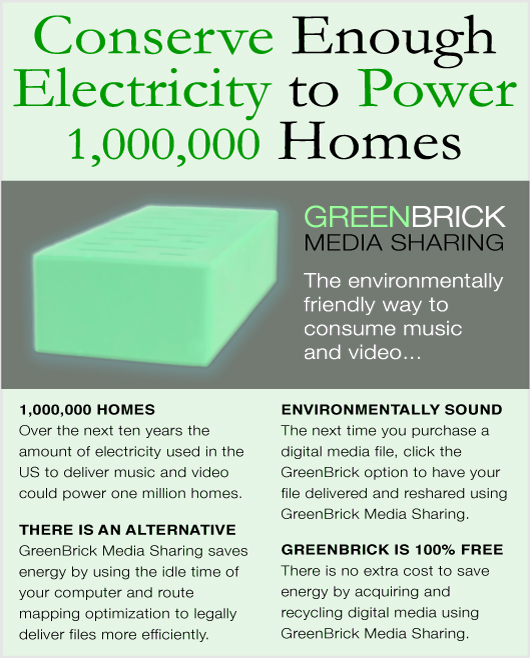Thanks for the comments I received on the Fan Funnel model we employ at ReverbNation. I’m still looking for more feedback, so please speak up if you have any.
Now, to continue the train of thought begun in the first post…
The Fan Funnel, in any incarnation, is incomplete. It is a ‘stock’ measurement in that it tells you how many fans you have in each section of the funnel at any given time. But it fails to measure some important things like the trajectory the Artist has (rate at which fans are entering the Funnel or moving down the funnel), and how deeply engaged those fans are with the content, to name a few. As a result of this deficiency, we developed a proprietary metric for every Artist that uses ReverbNation called a Band Equity(TM) Score. Artists use this in conjunction with the Fan Funnel.
Band Equity(TM) takes into account four factors that add up to the current value of the Artists’ portfolio of fan relationships (normalized as a ‘score’), as well as the trajectory of that value:
(1) Breadth
How many people does your content touch, overall? How many listen or even view it in a given time period? Having your content on many web pages, touching many people is a great way to understand the total conversion ‘potential’, and might be summed up as ‘awareness’. All else equal, an Artist whose content touches more people has a higher potential for converting fans and developing relationships than an Artist whose content touches fewer.
(2) Influence
How frequently do those people seek out a second instance of the content (like play a second song or video or view the blog after they play a song)? What is the ‘open rate’ on your emails to fans (what is the probability they will actually open and read it instead of just deleting it when it comes in)? How long do they play a song or video before they turn it off and do something else? All else equal, an Artist that garners more engagement per interaction has stronger and deeper relationships with their fans.
(3) Recency
When was the last time you engaged your fans? All else equal, an Artist that had their fans engaged yesterday has more Band Equity(TM) than an Artist that last engaged them six months ago. Recency causes your Band Equity (TM) to deteriorate over time if the # of fan interactions and level of engagement drop off. Think of this as the main ‘trajectory’ element.
(4) Access
Of your total ‘FANS’ and ‘LISTENERS’, how many of them can you contact without the assistance of a social network? If the only way you have to communicate with your ‘FANS’ is via a MySpace Bulletin, then you do not have the Band Equity(TM) that another Artist, all things equal, has if they can send a custom email or other custom message promoting their show or new release (full disclosure: ReverbNation provides a free email service for Artists, Labels, Managers, and Venues). This element cannot be underestimated by Artists. Social networks are a great place to RENT fan relationships, but the most savvy and successful Artists find ways to OWN their fan relationships, so they can access them when they want, and how they need.
 From these four elements we construct a Band Equity(TM) Score for each Artist (and we also build our Charts from those scores, because we believe that it measures the right things). It is updated once per day. The goal is to raise their awareness of these important factors in their success, and to give them visibility into which promotional/marketing efforts deliver the desired result - stronger, deeper, and more fan relationships.
From these four elements we construct a Band Equity(TM) Score for each Artist (and we also build our Charts from those scores, because we believe that it measures the right things). It is updated once per day. The goal is to raise their awareness of these important factors in their success, and to give them visibility into which promotional/marketing efforts deliver the desired result - stronger, deeper, and more fan relationships.
Let’s face it, record labels, talent buyers, gig promoters, and brands (people who pay the Artist) do not believe in MySpace friend counts anymore. The numbers can be easily spoofed and a few bad apples have spoiled it for everyone else. Artists, likewise, should not measure themselves by a metric like this alone, as the correlation between MySpace friend totals and commercial success is dubious, at best. That is not to say that establishing friend relationships at MySpace is not a valuable endeavor (it can definitely add to awareness, and MySpace is probably still the best place to go to harvest fan relationships). But, as a single metric for understanding the ‘financial potential’ of your band (notice I did not say the ‘artistic value’), it falls short. We provide tools for the Artists to actually incorporate the activity happening at MySpace, Facebook, blogs, homepages, etc, into the Band Equity (TM) Score, so they can have a global view of their success. Its a big music world out there on the web, and Artists need a way to consolidate and understand how those fan relationships are changing across the board.
 November 24, 2008
November 24, 2008 













